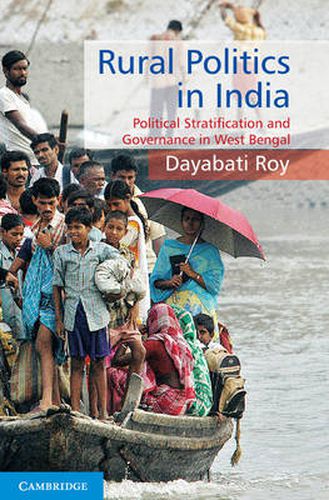Readings Newsletter
Become a Readings Member to make your shopping experience even easier.
Sign in or sign up for free!
You’re not far away from qualifying for FREE standard shipping within Australia
You’ve qualified for FREE standard shipping within Australia
The cart is loading…






This book discusses the forms and dynamics of political processes in rural India with a special emphasis on West Bengal, the nation’s fourth-most populous state. West Bengal’s political distinction stems from its long legacy of a Left-led coalition government for more than thirty years and its land reform initiatives. The book closely looks at how people from different castes, religions, and genders represent themselves in local governments, political parties, and in the social movements in West Bengal. At the same time it addresses some important questions: Is there any new pattern of politics emerging at the margins? How does this pattern of politics correspond with the current discourse of governance? Using ethnographic techniques, it claims to chart new territories by not only examining how rural people see the state, but also conceiving the context by comparing the available theoretical frameworks put forward to explain the political dynamics of rural India.
$9.00 standard shipping within Australia
FREE standard shipping within Australia for orders over $100.00
Express & International shipping calculated at checkout
This book discusses the forms and dynamics of political processes in rural India with a special emphasis on West Bengal, the nation’s fourth-most populous state. West Bengal’s political distinction stems from its long legacy of a Left-led coalition government for more than thirty years and its land reform initiatives. The book closely looks at how people from different castes, religions, and genders represent themselves in local governments, political parties, and in the social movements in West Bengal. At the same time it addresses some important questions: Is there any new pattern of politics emerging at the margins? How does this pattern of politics correspond with the current discourse of governance? Using ethnographic techniques, it claims to chart new territories by not only examining how rural people see the state, but also conceiving the context by comparing the available theoretical frameworks put forward to explain the political dynamics of rural India.